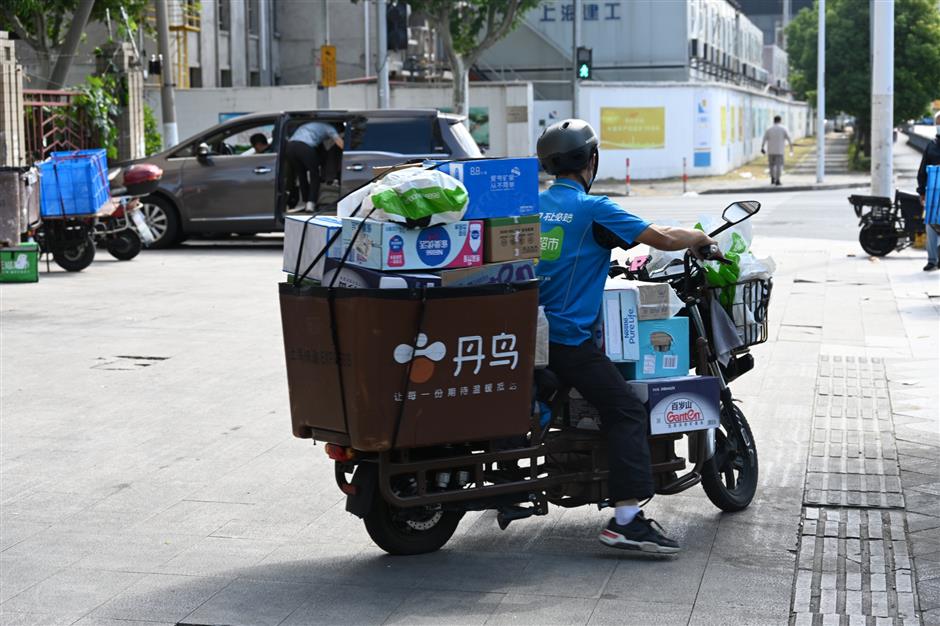Deputies discuss improving capacity of health centers

Patients receive treatment at a community hospital in Shanghai.
Shanghai legislators have expressed concerns about the city's medical resources, which triggered heated discussions during the ongoing Two Sessions.
Many of them suggested that the city greatly improve the medical capacity of community health centers.
Following the relaxation of COVID-19 control measures, the city faced an infection peak in December, in which community-level medical institutions played an important role in sharing medical pressures.
Nearly 2,600 fever clinics were in operation, which received more than half patients.
Two of the deputies to the Shanghai People's Congress, the city's legislature, contributed their ideas on how to upgrade the city's community-level medical institutions.

Wu Jian (center), a deputy to the 16th Shanghai People's Congress, at a panel discussion amid the ongoing Two Sessions
Emergency response
"Currently, Shanghai's medical resources, such as facilities, personnel and medicine, still concentrate upon city-level hospitals," deputy Wu Jian said.
He suggested that the city establish an emergency response system, which covers and connects all the medical institutions, medicines, ambulances and medics.
"And the resources should lean forward to community-level hospitals," he said.
"When the emergency happens, such as the recent surge of COVID-19 infection, we can allocate resources according to the demands as soon as possible."
He pointed out that in the recent COVID-19 resurgence, local residents' demand for medication rose sharply, which overwhelmed the original medicine reserve system.
"Even if there are medicines in hospitals and pharmacies, the logistics system is hard to meet the high demands," he said.

Delivery drivers bear up under logistics pressure amid the infection peak.
"We designed the current medical system 20 years ago. Although progress has always been made in upgrading, there are still challenges when all emergency situations happen at the same time."
He called on the city to put more effort in optimizing the current medicine allocation system, and equip the current neighborhood health centers with more medics, facilities and drugs.
"If residents can get drugs and medical services they need in neighborhood clinics, there is no need for them to go to city-level hospitals," he said.
He also called for better incentives for medical staff.
"Especially in the community-level medical institutions," he said. "If they share the same resources with big hospitals, such as pay, training, etc, I think medical students would be more willing to work there."

Jin Ying (second from left), a deputy to the 16th Shanghai People's Congress, at a panel discussion amid the ongoing Two Sessions
Rename neighborhood health centers
For deputy Jin Ying, it's important to change the name of the community health center. "It means improving its medical capacity from all sides," she told Shanghai Daily.
Jin said these centers used to provide six kinds of services ― disease prevention, health care, rehabilitation, medical services, health education and family planning guidance.
"We need to expand their medical specialities and scale up medical teams," she said.
"A good talent team means that we can not only have general practitioners, but also have all the specialities, including physicians, surgeons, gynecologist, paediatricians as well as ENT experts."
Jin hopes that the name change will let citizens know that an actual "hospital" is accessible at the doorstep.
And it can also help to attract more medical talent, she said.












